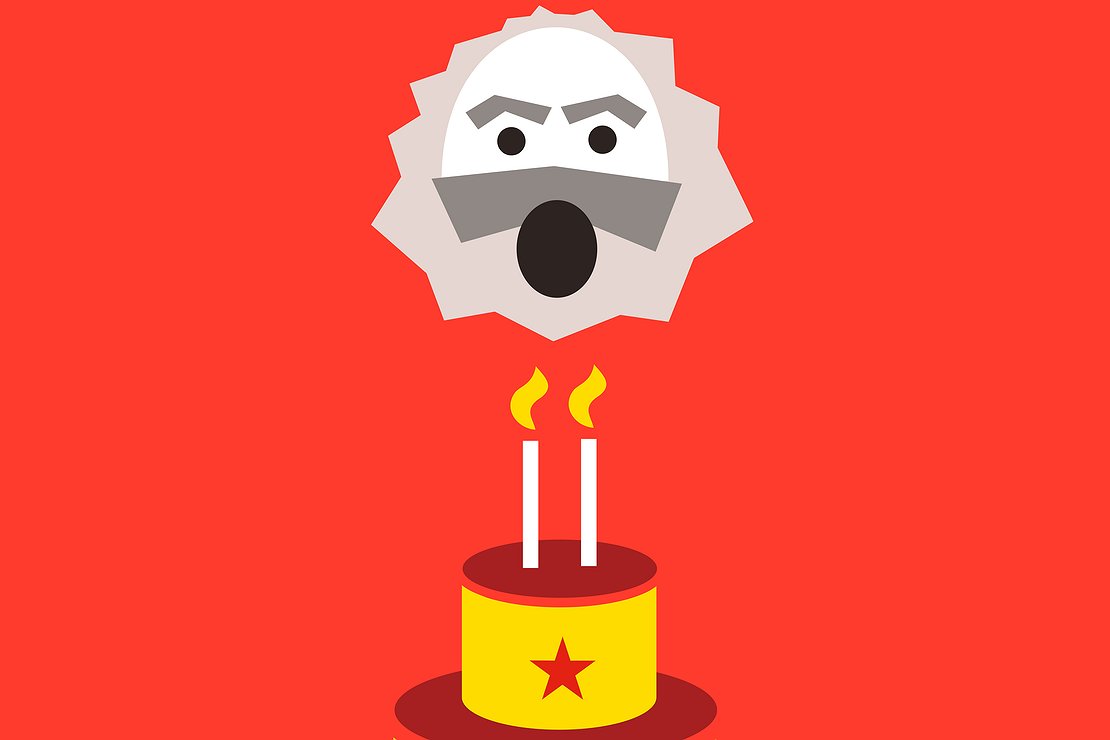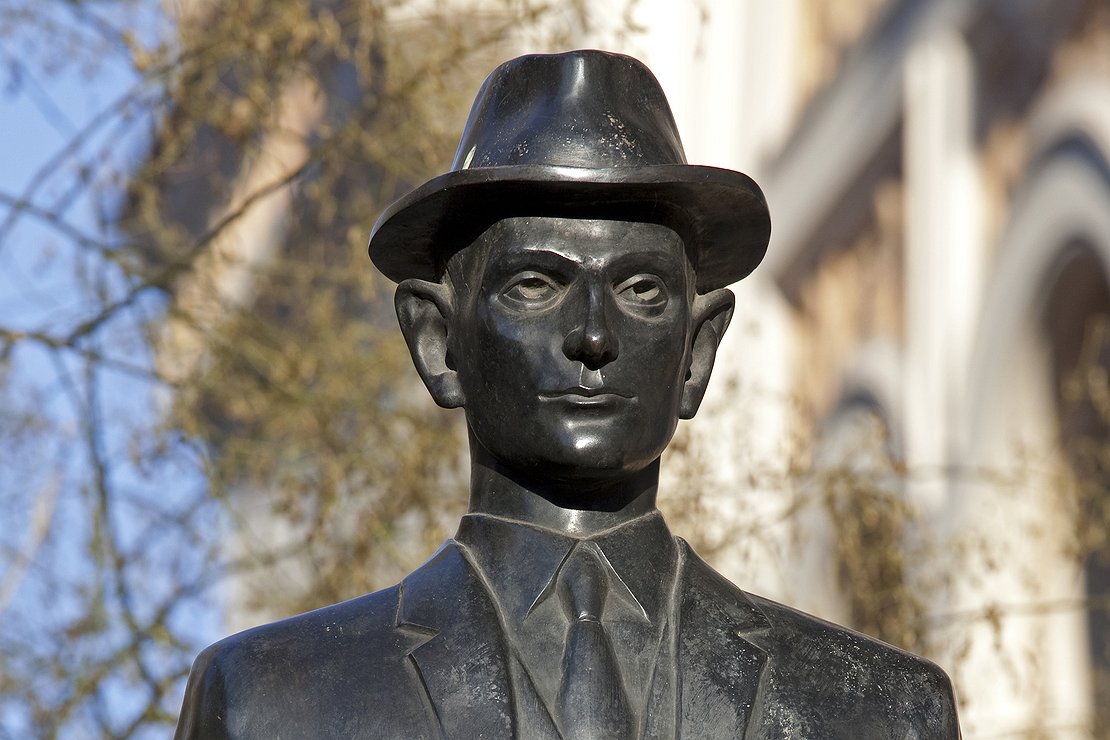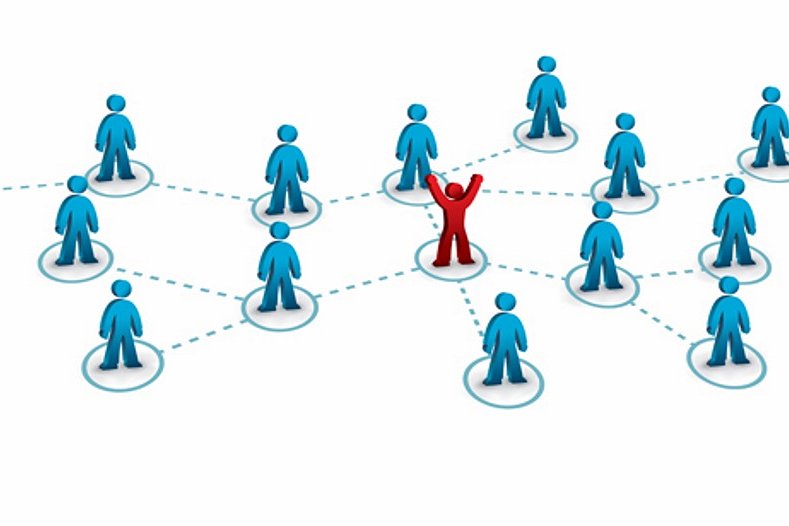
Europe celebrates Karl Marx anniversary:A Soft Spot for Charlatans
For Karl Marx's 200th birthday, the political class and the ‘progressive’ milieu left nothing to be desired. While a cinematic memorial to the Bearded One had already been made a few months ago, a real one has now been added, for whose inauguration in Trier pretty much everyone of rank and name was gathered, from EU Commission President Juncker and various clergymen of the established Churches to television celebrities. Whether Trier will be renamed Karl-Marx-Stadt on his 250th birthday is as yet unknown – but for the time being the name would be available.
At least there is something honest about the big fuss that is being made about the economic mountebank. The fact that the President of the EU Commission himself appeared, and the churches bowed reverently before the militant atheist, is characteristic of how deeply Europe has not only already sunk into the mire of a totalitarian heritage, but stubbornly adheres to it, although it has led to the continent, which had ruled a quarter of the earth's surface on the eve of the First World War, now being on its last legs.
It is stressed everywhere that Karl Marx cannot be held responsible for the mass murders and the misery his epigones have caused, and it is pointed out that Marx himself, on his deathbed, is said to have warned against wanting to make political use of his ideas. However, this is a very poor argument at a time when, on other occasions, continuity of German intellectual life must be constructed from Parsifal to Hitler, or old books must be rewritten due to politically incorrect words.
This is all the more true because, wherever the communist parties seized power, they didn’t change the prescription set out in the writings of Marx and the ‘Manifesto.’ That the measures they took did not work in the way predicted, and that the workers still show little enthusiasm for their own ‘liberation’ if it leads to long queues for milk and bread or the unavailability of toilet paper, could never be due to the theory itself, but always only to the ‘false consciousness’ that people have to unlearn, or to underhanded sabotage by the class enemy.
The fact that the USA, unlike Europe, developed perfectly well, even without the prescriptions of so-called modernity, did not exactly confirm the thesis of an inevitably necessary mass impoverishment by capitalism, which could only be counteracted by a violent revolution and the socialization of the means of production. The indisputable workers' misery in large cities over the course of industrialization, triggered by mass rural exodus as a result of the end of manorialism, did not prove to be permanent.
Nevertheless, Marxist ideology has been able to hold its ground in Europe over the centuries. It has offered simple patterns of explanation for economic crises, as they inevitably occur from time to time when market participants' expectations do not correspond to actual developments. It also offered a plausible sounding explanation for undesirable developments in political and social life; one which did not suggest that people make bad decisions and should therefore perhaps check their premises.
Instead, it found a way to ideologically ‘beautify’ these undesirable developments, such as the secularization of everyday life, the erosion of marriage and family, or behavioral and moral decline, in that these were no longer to be regarded as a consequence of overload due to changed living conditions, but as necessary steps to ‘liberate’ the masses trapped in ‘exploitative contexts’ and lead them towards the earthly paradise of communism. If necessary, however, ‘capitalism’ could also be held responsible, if this seemed more opportune.
Marxism was, even more so than the original nationalism, a closed secular doctrine of salvation that could fill the vacuum left by Christianity. Christianity, which, after the conquest of Constantinople, after the Reformation, after the Thirty Years' War and after the introduction of the ‘cuius regio, eius religio’ rule, ‘whose realm, his religion,’ had rapidly lost importance. A vacuum which the Enlightenment, still very much overestimated today, could nowhere near make up for.
This was all the more so after National Socialism and the Second World War, after the competing brown totalitarians had ensured that not only the cities lay in ruins and the social fabric was destroyed, but also that Europe had to endure, alongside the shame of historically unprecedented barbarism, the loss of its standing on the global stage.
Not much of the original content of the 19th century worker mythology remained, however, when Western Marxism, which gained ground after 1945, achieved its breakthrough in 1968. That was also its recipe for success. No one had to struggle through dry and indigestible theories of labor value theory or the law of falling profit rates in order to be able to classify themselves as politically savvy. In any case, that would also have been a waste of effort, because the working class was more interested in refrigerators, cars and vacation trips than in the exploitative contexts in which they were supposedly still trapped.
What remained of Marx and his theories was the deep inner conviction that there were only ‘oppressors’ and ‘oppressed’ in the world, and that they had been in an ongoing conflict from the very beginning of history. The ‘oppressed’ on the other hand, as soon as they had understood their oppression, attained the ‘correct consciousness’ and were therefore under all circumstances in the right , if they decided to rebel against it.
When in doubt, the ‘oppressor’ is always the person who allegedly, or actually, stands in the way of the risk-free expansion of one's own ego at the expense of others, who is not simply prepared to submit to the unrestrained sense of entitlement of progressive fellow human beings, or who resists voluntarily making sacrifices for the current good idea for the liberation of humanity.
Now that the working class, as a revolutionary subject, is out of fashion, the ‘oppressed’ have changed their appearance and can assume any size or physical condition. ‘Capitalism’ is still the enemy, but since many ‘super-rich’ are supporting even Marxist agendas, it’s only one of many.
Nowadays the ‘oppressed’ are, among others, human sexuality, the world climate, women per se, but also any number of other socially constructed gender identities, the LGBTSQxyz community, but at the same time also Islam, Iran or the Palestinians, the Third World, ‘refugees,’ ‘people of color’ (but not the east Asians), the indigenous people of Chiapas, peoples affected by cultural appropriation, the childless, but also the ‘regretting-motherhood’ mothers or pubescent high school students who swallow washing machine tablets; they all now qualify as aggrieved and offended, and are therefore historical subjects in carrying forward the class struggle.
Evil is now also somewhat more broadly positioned, alongside the corporations, banks and managers – who are always addressed as such when they do something that does not correspond to the will of the progressive community – whether it’s the ‘patriarchy,’ the ‘reaction,’ ‘right-wing populism,’ ‘neoliberalism,’ ‘Zionists,’ ‘US imperialism,’ ‘arms lobby,’ ‘racism,’ ‘sexism,’ ‘lookism,’ ‘ableism,’ the omnipresent ‘heteronormativity,’ the ‘ecological footprint’ or country music that make life difficult for the morally good. Since Stalin abandoned the world revolution as a goal and the Communist Party has disappeared into insignificance, the Russians have become ‘enemies of humanity.’
Basically, Marxism has survived as an attitude toward life – as the feeling of being permanently disadvantaged everywhere (and all the time), while the world owes one one's life and one is morally superior to all others, even when one takes advantage of and betrays one's fellow human beings by virtue of one's good will. Karl Marx, who was cared for all his life by others, cheated on his wife and let his children die or drove them to suicide, was in this respect the best example.
However, Marx is not the only charlatan whom suicidal Europe has fallen for. The cultural crumbling that Marxism has caused wouldn’t be conceivable without, for example, the misanthropic pseudo-humanism of Thomas Malthus or the later works of the Club of Rome. The latter, in particular, contributed significantly to shifting Marxist economic ideas away from the brute heavy industrialization and aggressive infrastructure policies of the New Deal or the Stalin era and toward deindustrialization and population reduction in favor of ‘ecological sustainability.’ Since then, the proletariat is apparently to be de-proletarianised by depriving it of the ‘proles,’ i.e. its offspring.
The cult around Marx is patently consistent with the state in which Germany and Europe find themselves. Since his system of thinking also includes the essential techniques of being offended, envy mobilization and denial of reality, which make it possible to still hold on to the ‘good idea’ despite its obvious failure, one should not, for now, hope for further discernment.
Translated from eigentümlich frei, where the original article was published on 11th May 2018.




